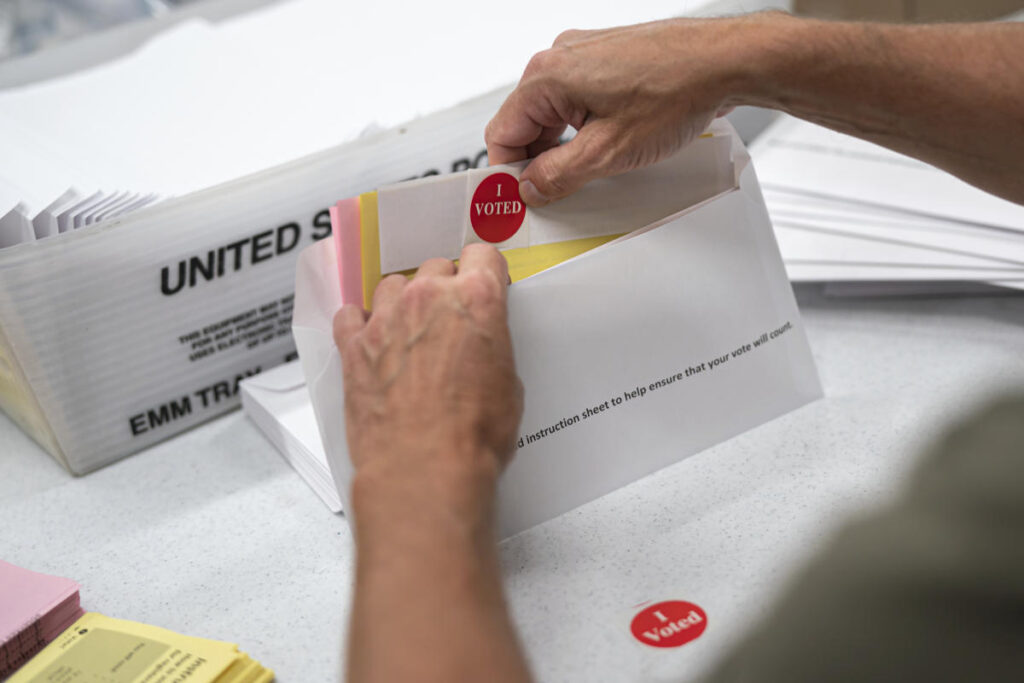In a recent ruling, the Minnesota Supreme Court has mandated that Hennepin County election officials must revert to a list provided by the Republican Party of Minnesota to appoint new members for an absentee ballot board. This decision, handed down by Chief Justice Natalie Hudson, signifies the court’s determination that local officials are obliged to appoint election judges exclusively from the party lists before seeking candidates from elsewhere. Hennepin County has until Friday to implement this directive, following what the court identified as an oversight in the way officials had populated their absentee ballot board, which had thus far included predominantly Democratic appointees.
Historically, the absentee ballot board in Hennepin County comprised four Democrats and one Republican. This board is responsible for reviewing and validating numerous absentee ballots, especially as the state has already commenced in-person early voting and absentee balloting since September 20. The directive does not impact the validity of over 263,000 absentee ballots already received, with more than 209,000 having been accepted under the current setup. The Republican Party, along with the Minnesota Voters Alliance, advocated for this court intervention after discovering that their extensive list of over 1,500 volunteers had not been considered for board appointments.
The court’s order sheds light on a larger issue regarding the appointment process for election judges, underscoring the importance of bipartisan representation on electoral boards as prescribed by state law. Hennepin County officials had previously operated under the belief that they could independently fill the board positions beyond those submitted by the Democratic and Republican parties. They cited that localities had primarily exhausted the roster of available judges, a practice that led to a perceived lack of diversity in board composition. The Supreme Court’s decision rectifies this by requiring adherence to the initial submissions from both political parties, emphasizing the importance of maintaining political balance in electoral oversight.
In direct response to the ruling, Hennepin County Auditor Daniel Rogan announced plans to swiftly reach out to individuals on the Republican Party’s list to fill the vacancies on the absentee ballot board. He noted that while the Supreme Court’s ruling was narrow, it confirmed the necessity of following the party lists, reflecting an acknowledgment of the current board’s political diversity. Meanwhile, Secretary of State Steve Simon affirmed that the county had been compliant with existing laws prior to this decision, a contention that the court ultimately rejected.
David Hann, the chair of the Minnesota Republican Party, framed the court’s ruling as a vital victory for election integrity within the state. He asserted that this serves as a warning to all counties regarding the legal obligations tied to the appointment of election judges and reinforced the notion that deviations from established practices would not be tolerated. The ruling, according to opponents of the current procedures, offers a framework for ensuring transparent and equitable processes amid ongoing concerns surrounding electoral integrity, especially in populous counties like Hennepin.
Interestingly, this decision comes on the heels of Hennepin County facing scrutiny over an unrelated incident involving a courier vehicle that left absentee ballots unattended outside a city hall. Although security footage confirmed the integrity of the ballots, the episode sparked broader discussions about election security and procedural adherence. The incident, paired with the recent ruling, reflects the heightened vigilance among officials and stakeholders regarding the inner workings of electoral processes as they prepare for upcoming elections amid a politically charged atmosphere.

